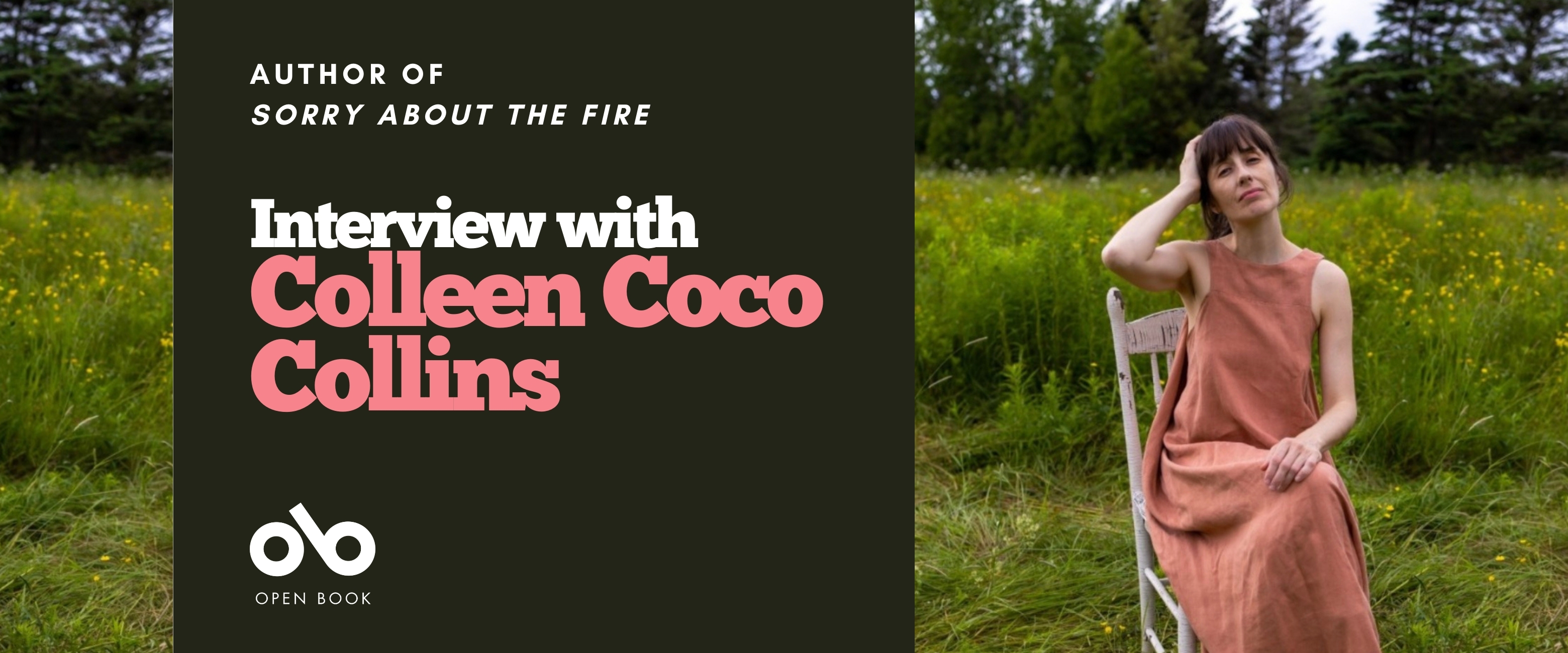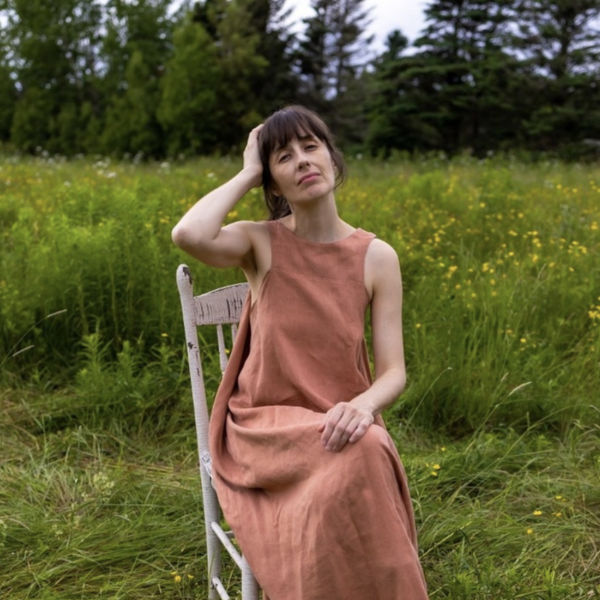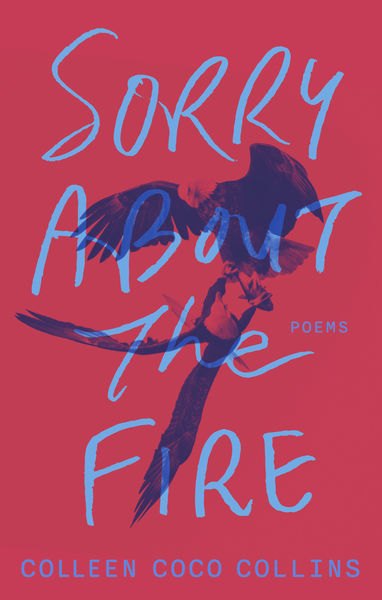Colleen Coco Collins Explores the Unique Pathway That Led to Their Debut Collection, Sorry About the Fire
The origin of a person's poetic nature can be elusive, but there are often moments that a poet might look back to that clearly signify this draw toward the spinning of words and ideas in carefully laid lines on the page. Inspiration can be found in the words of other poets, or by exploring indelible memories that linger in the mind.
Colleen Coco Collins is a poet whose voice needed to be heard, and they have made their debut with the stunning collection, Sorry About the Fire (Biblioasis). These poems draw from the author's unique and varied heritage, and set forth daring bursts "from the edge of language, sentence, land, and story."
We're thrilled to share this Poets in Profile interview with the author, where they explore this singular pathway to becoming a poet, and discuss influential works while sharing insights into their own process.
Open Book:
Can you describe an experience that you believe contributed to your becoming a poet?
Colleen Coco Collins:
Likely, the whole of the weave—each blade of the lawn!—land me here somehow. Though my earliest memory is one of gentle foil: on my first birthday, as other children arrived at the door, my mother held a box in one hand, contents out of view, strings dangling from its perimeter. Each was invited to choose and pull a string, to which—they discovered—was attached a sweet novelty they could keep.
But the kids were mostly older and taller, and the box held up such that grasping the strings eluded me. And the strings were fine, and I lost sight of them swaying, and I grasped at nothing. And dimly understood this was my being here being celebrated.
Thwart fired me into consciousness; elude-pursuit keeps me here!
OB:
What is the first poem you remember being affected by?
CCC:
"When you are old and grey and full of sleep,
Your CanLit News
Subscribe to Open Book’s newsletter to get local book events, literary content, writing tips, and more in your inbox
And nodding by the fire, take down this book,
And slowly read, and dream of the soft look
Your eyes had once—"
Yeats. One of the first stanzas I memorized, I think.. And as in Indigenous longthinking, it confirmed some kind of atemporality, and gave me the sense that perhaps things unfurled somehow backwards—and forwards—at once..
OB:
What do you do with a poem that just isn't working?
CCC:
Make it a song! Re-mantle it, or let it fallow..
OB:
What's more important in your opinion: the way a poem opens or the way it ends?
CCC:
Something about the beauty of the palindrome!; and bookends, and how a candle tapers, and then its flame does too. And also: the ourobouros. Does the end nourish the start, and does the poem run the way of the entropic too? Can the end grow the teeth of the start?
It’s the waist of the poem that hampers me: do I fasten these pants above or below the omphalos? (--The Oracle, on a triped stool, leaning over the omphalos stone, getting high and prophesizing!). Do I fasten these middle parts at all?? Elastic, suspender, plain old surrender? Or do I slip this frock and Godiva through the streets, un-levying and relieving the poem of its tithing?
OB:
What was the last book of poetry you read that really knocked your socks off?
CCC:
Luke Hathaway’s The Affirmations:
"These lines a cage that lions you,
Around, all through the bars of which
You fall upon me still, as light.
Expect another, longer letter soon.
(this bit from Fire Flower)."
And Ryszard Krynicki’s Magnetic Point:
"Poor moth, I can’t help you,
I can only turn out the light.
(from I Can’t Help You).."
And also the collected texts of Black Nature, edited by Camille T. Dungy. And Catherine Owen’s The Wrecks Of Eden. And the works of Palestinian poets Ahmad Almallah, Fady Joudah, and Mosab Abu Toha.
OB:
What is the best thing about being a poet…and what is the worst?
CCC:
The weave! Arachne knew it—Asibikaashi too! And Penelope, and her perpetua-undo.
It’s the thrill of the rough gather-gyre narrowing into a fine gossamer, spinning into threads of meaning, re-woven to deepen even further meaning and complexify nexus and reveal illumination, that I am most taken with..
I think the work of poetry is the best about being a poet. The weaving of the mesh that draws disparates into proximity and through their ensuing reciprocal rubs, enlightens, delights, unveils, enrages, and begets meaning, and question, and reckon..
_________________________________________________
Colleen Coco Collins [she/they] is an interdisciplinary artist of Irish, French, and Odawa descent, working in songwriting, performance, poetry and visual arts. She’s worked as a gallery director, in forestry, fossil preparation, and renovation; as an autism support worker, teacher, and women’s shelter counsellor. Her writing, music, and art practice centers on temporality, presumptions of sentience, subversion, rhythm, gesture, geographies, biophonies, frequencies, the ouroboric, the peripatetic, love and the polyglottic. Hailing from Antler River/Deshkan Ziibiing/London, Ontario, Coco has studied at universities in Nova Scotia, New Brunswick, New Zealand, and Ireland. She lives litorally in rural Port Greville, Mi’kma’ki/Nova Scotia amidst crows, coyotes, grackles, bees, humpback, lichen and fox.







